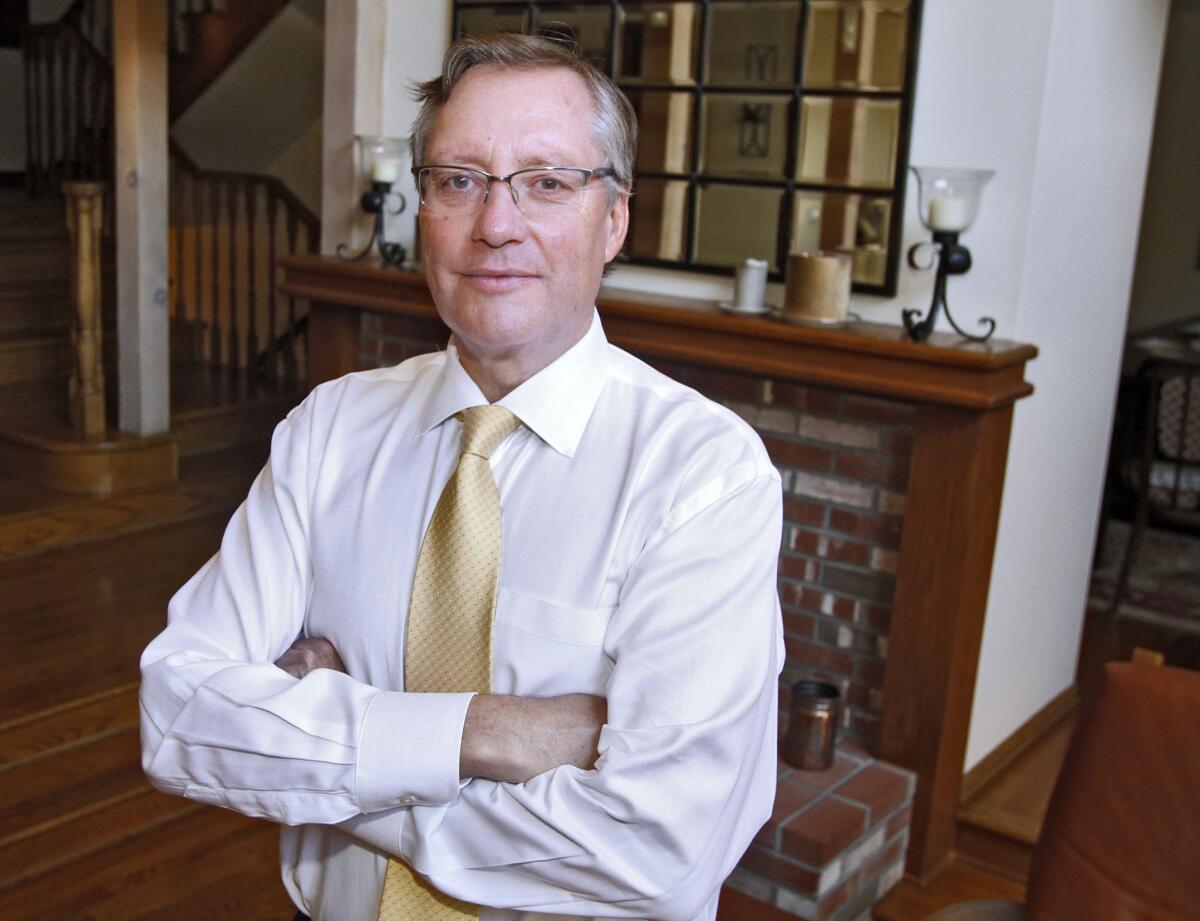Activities are music to Sagal’s ears

- Share via
Music in the Park veterans are probably already familiar with David Sagal, who has played in a jazz quintet over the past several years at the city’s annual outdoor concert series. He is an executive and attorney at Warner Bros. with three children — two of them attend La Cañada High School. Sagal, 58, sat down with the Valley Sun in his La Cañada home to discuss music, tax rates and the impending challenges the school district will face.
How is music a part of your family?
I have a background in music. I play music in the park, I’ve played for the last six years in my band, and I was a very serious saxophone player in high school; and then in college, I continued to play.
My son, Bo, played clarinet and guitar in the jazz band, clarinet in the marching band and orchestra. My daughter, Nora, is an exceptional bassoon player. She’s been in California All State Orchestra for two years in a row. She also sings in choir. They all sing.
My son, Finn, plays saxophone, oboe and he also sings in his choir. They are all encouraged to play an instrument.
I think it’s important and they’ve really had a lot of enjoyment with music.
I’m currently president of the La Cañada High School Music Parents Assn., which is responsible for the smooth running of the band and the orchestra program. We do a lot of fundraising and the district doesn’t really pay for the program. They pay for the teachers’ salaries. We as parents raise most of the money to keep the program running.
My wife is also very involved. She is co-president of the choir parent’s association. So there’s a lot of music in the house.
Was music a part of your life growing up?
My mom was a professional singer before she got married and my sister is a very good singer.
Do you think extracurricular activities are important?
I think it’s essential. This is such a high-pressure environment and the kids are asked so much that they really need some place to excel besides the classroom.
All these activities are very important to the school. I think the board can do a lot to promote that, particularly with respect to scheduling. The issue is always scheduling. When can you have rehearsals, or are there conflicts with the classes you want to take? And that’s one of the things I’d like to look at to make sure that everybody has the opportunity to get involved with some sort of extracurricular activity.
Do you support a high parcel tax rate?
I support the highest rate possible. My range is between $350 and $450, a little lower than I think where the board is right now. I’ve talked to a lot of people and that is where a lot of people feel comfortable, not only people [with children] in the schools, but people without kids in the schools.
Obviously, the best solution is to get it passed the first time. I think more discussion has to take place before they lay down the exact number.
How would your legal expertise help you as a school board member?
My job has been for many years to solve very complicated financial and legal issues that confront my company. I think, with 20 years of experience, I’ve seen a lot of different situations.
I think I would be able to apply that expertise to whatever issues the board is confronted with.
Also, I have a financial background. The way that the district is funded, we are going to have some very serious financial issues in the future. Local-control funding, one of the things it does, is gives the board discretion on how the money is spent; and so I think that it’s very important that the people on the board have some experience with financial matters because we’re going to be taking some hard looks at the way the budget is approved. In the past funding formula for the state, most of the items were designated by the state.
Any new program or initiative you’d like to see?
We have so many issues over the next two years that it is important that the board keep their eye on the ball. The ball is making sure that we are adequately funded and when we adopt this new funding formula, that everything continues to work correctly. We are going to be adopting the Common Core, which is going to dramatically change the way the classroom works. We all have to work together — teachers, administrators, the board — to get through these next couple of years where this new curriculum is going to be adopted. We’re going to have to advance the technology in the schools in order to adopt Common Core.
I don’t really think now is the time to think about new initiatives so much as taking care of settling all the changes that are going to be happening. Once that is done, that’s when I think it would be time to take a look at new initiatives.
This interview was edited for space and clarity.
--
Follow Tiffany Kelly on Google+ and on Twitter: @LATiffanyKelly.